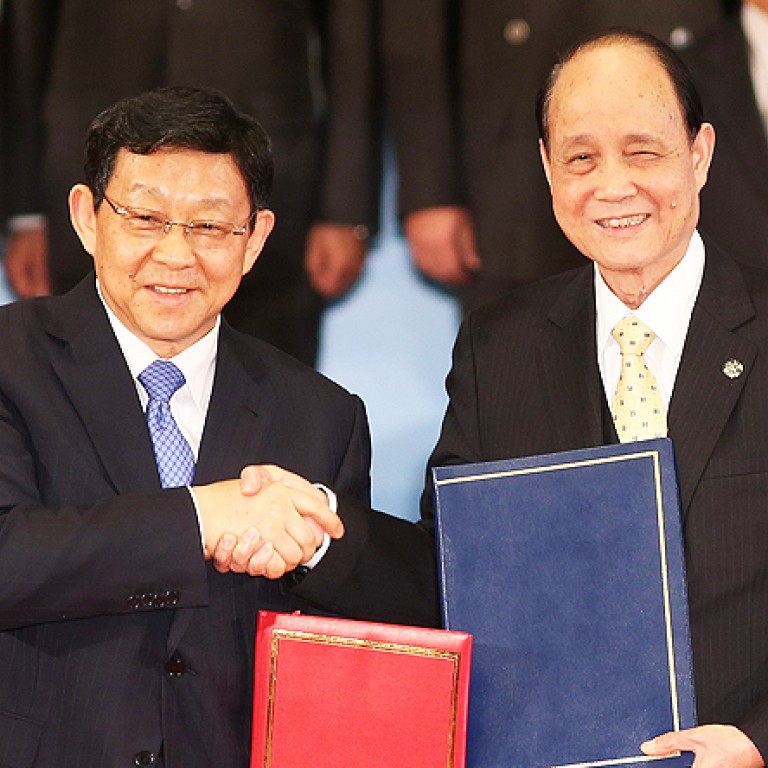
Taiwan and China sign agreements on meteorology and earthquake monitoring
Data sharing will include information from the Taiwanese air force’s meteorological squadron on the Spratly Islands
Taiwan and the mainland signed two co-operation agreements on meteorology and earthquake monitoring on Thursday that involve sharing data relating to the militarily sensitive Spratly Islands in the South China Sea.
The two sides also agreed to hold talks on six other issues in their next round of negotiations with the possibility of signing an anti-smog and air pollution pact.
“The meteorological and earthquake co-operation agreements will facilitate our two sides in setting up liaison and monitoring systems that would allow us to exchange real-time information related to our meteorological forecasts and seismological movements,” Lin Join-sane, head of Taiwan’s Straits Exchange Foundation (SEF).
According to the meteorological agreement signed in Taipei by Lin and his mainland counterpart Chen Deming of the Association for Relations Across the Taiwan Strait (Arats), the data sharing will include information from the Taiwanese air force’s meteorological squadron on the Spratly Islands.
Taiwan has stationed military-trained coastguard officers on Taiping Islet, the largest of the potentially oil-rich Spratly Island group, which is claimed wholly or in part by China, Vietnam, Brunei, Malaysia and the Philippines.
Tensions have been on the rise in the region following growing disputes over territorial claims to the islands, with Beijing hardening its stance with warship drills and patrols in the waters and declaration of its nine-dash line demarcation of the region.
Asked if future data sharing would violate Taiwan’s security laws, defence ministry spokesman Luo Shou-he said the air force had long been in the practice of sharing weather information with Taiwan’s Central Weather Bureau and data compiled by the metrological station on Taiping Islet was not sensitive or classified information.
Of the mainland’s growing air-pollution, which has begun to affect Taiwan as smog is blown towards the island, Lin said the two sides had agreed to hold talks on this issue during their next round of negotiations later this year. Other issues to be discussed include avoidance of double taxation, tax co-operation, merchandise trade and dispute settlement, establishment of representative offices, aviation safety and permission for mainland tourists to transit from Taiwan’s international airports.
“We will not rule out any possibility of signing agreements on any of these issues as soon as progress can be made and talks can go on smoothly,” Lin added.
Chen, who arrived in Taiwan on Wednesday for the talks – the 10th round since 2008 – on Thursday met Wang Yu-chi, minister of Taiwan’s Mainland Affairs Council and addressed Wang using his official title – an act made possible after Wang held landmark talks in Nanjing on February 11 with his mainland counterpart Zhang Zhijun of the State Council’s Taiwan Affairs Office.
The Nanjing talks were the first government-to-government talks by the two sides since the Nationalists fled to Taiwan in 1949. Previous talks between the two sides have been conducted through semi-official bodies, party organisations and other proxies. Beijing has always refrained from using titles of Taiwanese officials as Taiwan is regarded as a mainland province not a foreign state.
Chen is scheduled to visit two giant pandas on Friday as well as their Taiwan-born offspring at Taipei Zoo before wrapping up his three-day visit to the island. The two pandas were sent as gifts to the island by the mainland in 2008.
